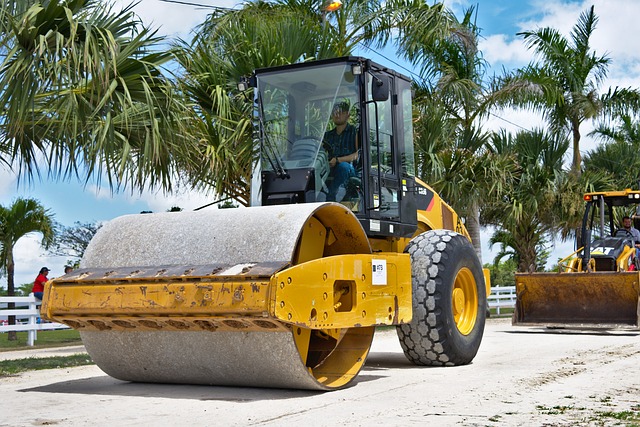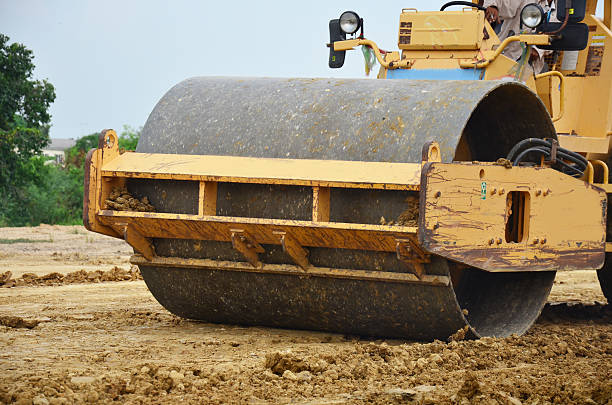For the purpose of ensuring the building of a solid infrastructure and the successful completion of a project, roller compactors are absolutely necessary for asphalt paving, soil compaction, and foundation construction.
In spite of this, fuel efficiency has become an important factor to take into account when purchasing equipment due to the rising cost of gasoline and concerns about the environment. A comparison of models, an investigation into the impact that fuel consumption has on running budgets, and practical recommendations to optimize efficiency are all included in this guidebook.
What Is Road Roller Fuel Consumption?
In road rollers, fuel consumption is the running fuel consumption of a roller engine. Understanding road rollers’ fuel consumption will directly affect project efficiency and cost as they are vital in construction for jobs like compaction of asphalt, gravel, or dirt. Knowing the fuel consumption of your roller helps you to better budget, save needless expenses, and lower environmental effect. Every liter of gasoline counts in construction, hence fuel economy is quite important.
Why is there a Concern Regarding Fuel Efficiency in Roller Compactors?
The use of gasoline has a direct impact on both the operating expenditures and the environmental goals. Fuel prices are always fluctuating, which means that inefficient machinery may put a burden on budgets and reduce profitability.
There is a correlation between excessive fuel consumption and lower project bid competitiveness as well as increased maintenance requirements. For example, a roller compactor that operates at a rate of five gallons per hour and costs three dollars per gallon would cost $150 per day or $750 per week in fuel alone.
Choosing fuel-efficient models and procedures not only ensures long-term financial savings but also aligns with the trend of ecologically responsible construction.
Components of Critical Importance That Influence Fuel Consumption
- Engine Type: The better thermal efficiency and torque of diesel engines often allow them to outperform gasoline engines. Hybrid and electric versions of diesel engines are now being developed as potential replacements in order to lessen dependency on fuel and pollution.
- The weight of the machine: Although bigger models use more fuel, compactors that are smaller in weight operate more efficiently.
- Operational Practices: In addition to idling, excessive speed, and inconsistent compaction force, there are three operating behaviors that contribute to increased fuel consumption.
This will assist in saving fuel by reducing the amount of time spent waiting between breaks and by optimizing speed.
- Maintenance: Increased efficiency may be achieved by regular engine tuning as well as oil and filter replacements.
There is a correlation between excessive fuel consumption and real-time performance monitoring, which is made feasible by telematics and ECU systems.
Impact of High Fuel Consumption
Excessive gasoline use has a domino effect on both the financial and operational aspects of a business. gasoline expenditures may be used to restrict operating expenses, which in turn can reduce profit margins.
Fees for upkeep and repairs: Because efficient engines wear out more quickly, it is necessary to repair their components on a regular basis.
It is possible for contractors that use fuel-intensive equipment to lose contracts to rivals who offer more inexpensive options.
A Comparative Analysis of Different Roller Compactor Models
A Review of the Most Important Criteria
- According to the fuel consumption rates (GPH/LPH), Perform a comparison under working conditions that are similar.
- A comparison of the force of compaction to the speed: Increasing efficiency requires processes that are both faster and free of quality degradation.
- Components of the environment that are favorable: Look for hybrid engines or “Eco Mode” (Volkswagen EC950F) in the literature.
Plans for Confirmation of Results
It is important to cross-check the statements made by the manufacturer with unbiased evaluations and comments from peers.
Analyze the production information, such as the amount of fuel used for each cubic yard of material that has been compacted.
Fuel Efficiency Ratings and Certifications
Fuel Certifications and Efficiency Ratings EPA and CARB certifications are evidence that conformity with environmental standards has been achieved.
Testing in a practical setting: A number of site characteristics, including temperature, slope, and soil type, may have an effect on performance. Always request information on the field trial.
Ideal Methods for Efficiently Saving Fuel in Operations
It is important to avoid idling equipment for no reason and to switch it off during breaks. Teach operators how to regulate their speed perfectly and accelerate without any hiccups.
Pathways of Upkeep and Repair
- Hydraulic fluids and air filters should be replaced on a regular basis.
- Monitor the pressure in the tires to reduce the rolling resistance.
Synchronization of Technologies: Use telematics to monitor trends in fuel use and identify areas of inefficiency.
Potential Future Directions for Roller Compaction
As an alternative, the industry is shifting its focus toward innovation and sustainability:
– Electric and hybrid models, such as the Bomag E-VIB, reduce the amounts of pollution, noise, and fuel expenses over the long run.
Depending on the data that is being collected in real time, smart technology solutions that are powered by artificial intelligence enhance engine performance.
Regulations that are more stringent regarding emissions will speed up the adoption of ecologically friendly design.
At long last, the commitment to environmental responsibility and the control of costs are dependent on giving fuel efficiency the highest priority when purchasing roller compactors. By evaluating engine technology, operational processes, and maintenance schedules, contractors and fleet managers have the potential to reduce their recurring operating expenses over the long term.
The profitability of the project should be improved
View the aims for sustainability.
In the end, strike a balance between early spending and savings throughout the lifetime. While it is possible that a fuel-efficient car may be more costly, the fact that it will have reduced expenditures for both fuel and maintenance will result in a considerable return on investment.





